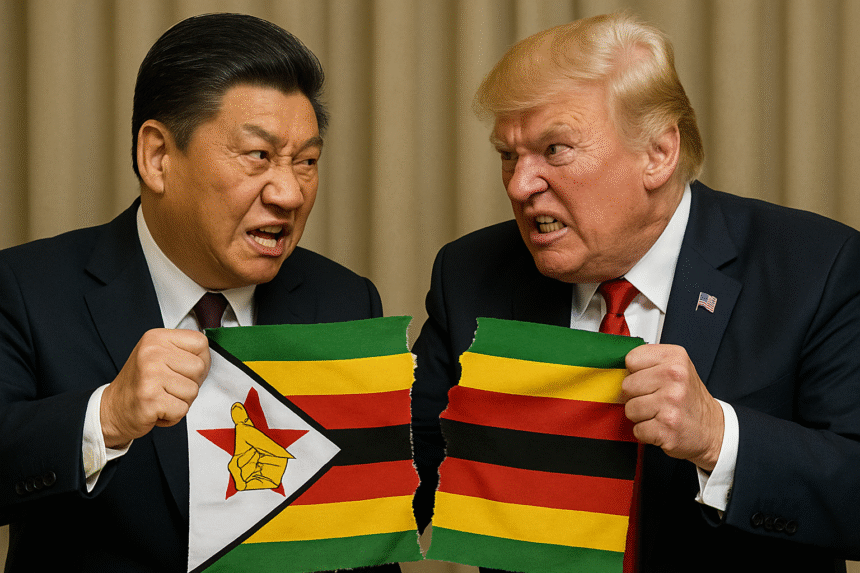Zimbabwe has once again found itself at the intersection of competing global interests, with the West and China both vying for influence. Western powers have been openly critical of Harare’s growing diplomatic and economic ties with Beijing, while China continues to expand its footprint in the country through aid, investment, and infrastructure projects.
The contest for influence has been likened to a love triangle, with Zimbabwe cast as the bride courted by two determined suitors. Both “know her worth” and understand the value of what lies beneath her soil, a wealth of resources that could shape the future of the global economy. The rivalry is not new; foreign powers have been engaged in Zimbabwe for decades, exploring its lands and quietly assessing its potential.
Much of Zimbabwe’s true resource wealth remains underexplored. Beneath its fertile farmland and favourable climate lie significant mineral deposits, some already known, others yet to be discovered. As foreign companies purchase tracts of land, often in strategically chosen areas, questions are being raised over their long-term intentions.
Analysts warn that such land acquisitions are rarely random. In many cases, geological surveys are completed long before a purchase is made, giving buyers detailed knowledge of what lies underground. Once the land is in private hands, the owners hold the rights to apply for mining licences, potentially shifting its use from agriculture to extraction.
While China deepens its economic engagement, the United States has taken a markedly different approach. Washington has introduced measures designed to increase pressure on Harare, refusing visas to senior officials, imposing targeted sanctions, and raising tariffs on Zimbabwean exports. US policymakers argue these steps are intended to encourage democratic reforms and greater transparency. Critics in Zimbabwe, however, see them as punitive tactics aimed at derailing the economy and forcing the country into negotiations on terms more favourable to Washington’s strategic interests.
The Zimbabwean government has so far remained defiant, insisting it will not alter its policies under external pressure. Officials maintain that the country has the right to choose its partners and development path without coercion.
For Zimbabwe, the challenge is to safeguard its sovereignty while capitalising on its natural advantages. With its combination of arable farmland, favourable climate, and untapped mineral wealth, the country has the potential to transform its economy. The question is whether it can do so on its terms, without becoming overly dependent on or constrained by any single external power.










